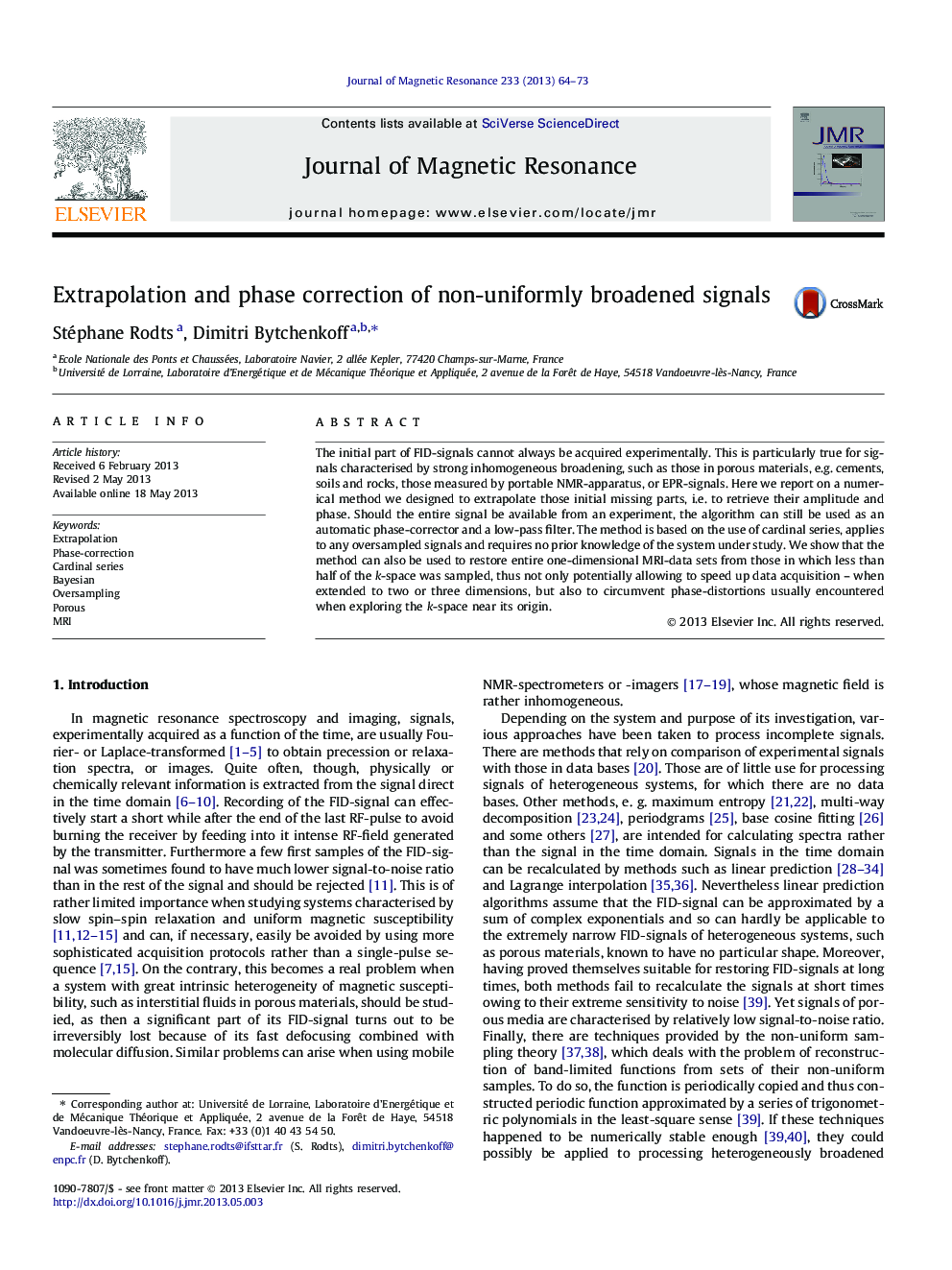| Article ID | Journal | Published Year | Pages | File Type |
|---|---|---|---|---|
| 5405636 | Journal of Magnetic Resonance | 2013 | 10 Pages |
â¢A numerical method for restoration of heterogeneously broadened NMR-signals is proposed.â¢The method can be used as an automatic phase-corrector and a low-pass filter.â¢We propose a fast MRI-protocol with zero echo time, based on the method.
The initial part of FID-signals cannot always be acquired experimentally. This is particularly true for signals characterised by strong inhomogeneous broadening, such as those in porous materials, e.g. cements, soils and rocks, those measured by portable NMR-apparatus, or EPR-signals. Here we report on a numerical method we designed to extrapolate those initial missing parts, i.e. to retrieve their amplitude and phase. Should the entire signal be available from an experiment, the algorithm can still be used as an automatic phase-corrector and a low-pass filter. The method is based on the use of cardinal series, applies to any oversampled signals and requires no prior knowledge of the system under study. We show that the method can also be used to restore entire one-dimensional MRI-data sets from those in which less than half of the k-space was sampled, thus not only potentially allowing to speed up data acquisition - when extended to two or three dimensions, but also to circumvent phase-distortions usually encountered when exploring the k-space near its origin.
Graphical abstractDownload high-res image (134KB)Download full-size image
